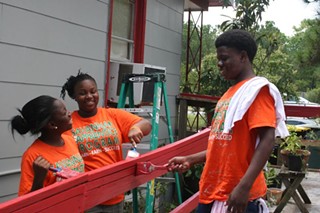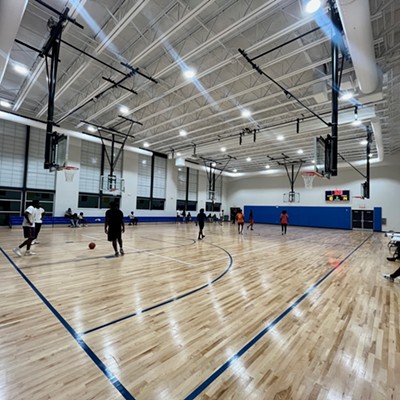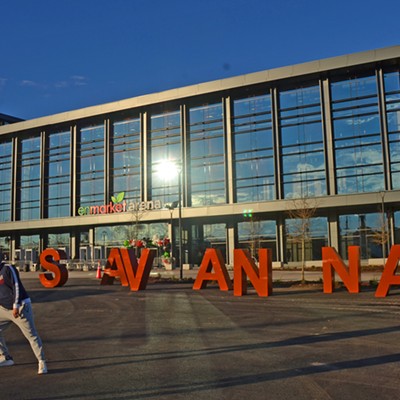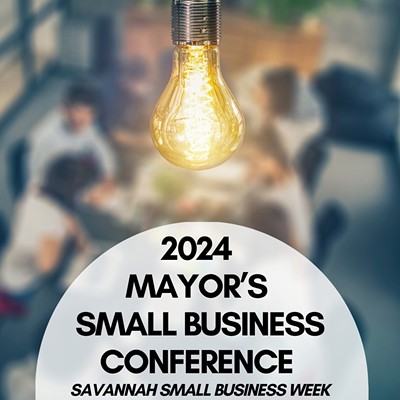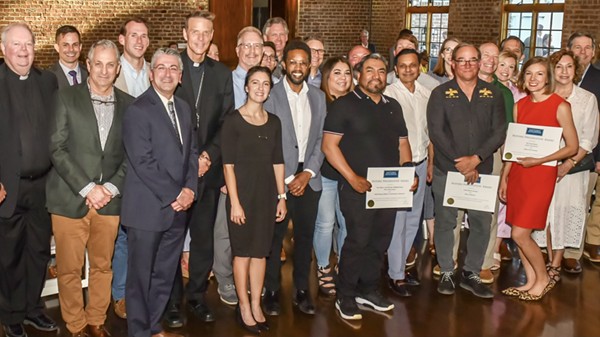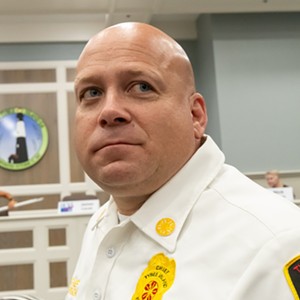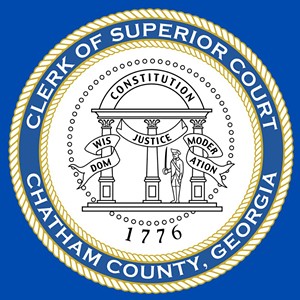Sometimes all it takes to turn a life around is the right information.
That's the concept behind the City of Savannah's Pre-Apprenticeship Program, a 7-week summer internship for kids 14-16 that's more like an orientation for adulthood: How to fill out a job application. Learning to manage your time. Developing a sense of accountability. Helping one's neighbors.
It's the latter activity that brought more than a dozen SPAP participants to two dilapidated homes in the Tatumville neighborhood last week. A group in bright orange T-shirts wielded rollers of gray paint on the siding while others touched up the trim in bright red. A few more tackled the overgrown grass in back.
"We're here to help out the folks who live here, to make their homes nice again," said 16-year old Marquan Brown.
Softspoken with glasses, Brown explained that the painting and landscaping is just part of what he's learned this summer: He earned his CPR certificate, received math tutoring, listened to local business people and — after spending time on the Savannah State University and Savannah Tech campuses — is considering going to college.
"I signed up for this because it got me off the streets for the summer, but it's really opened my eyes to new possibilities," he said in between brushstrokes along a window pane.
The Tatumville site is one of four sites around the city that have paired low-income community members with 40 strong-backed apprentices. Brown and the rest of his cohorts are paid minimum wage — $7.25/hour — for their work, and half those wages are automatically deposited into a savings account opened on a SPAP field trip to the bank: Another valuable lesson.
While community service and fiscal responsibility fulfill some facets of responsible adulthood, SPAP also wants participants to broaden their cultural and historical scope: There have been trolley tours of the city and trips to the Ralph Gilbert Marks Civil Rights Museum and the Jepson Center for the Arts.
Exposure to the arts may seem ancillary, but it is a vital part of the program, according to City Manager Stephanie Cutter.
"I believe that all children should have an opportunity to experience some of the finer things in life," she contends.
Cutter spearheaded SPAP as a way to "walk the talk" that circulates about deterring crime and helping Savannah's young people find positive career and social tracks.
"We sit around and talk about the problem and often times target the youth as the cause," she continues. "I thought this summer, let's put together a comprehensive arena to them teach about work ethics and help them with learning math and reading and actually be there to provide that holistic support."
Cutter reports receiving tremendous support from the city staff and elected officials. The pilot program has also garnered volunteers from the educational and business communities.
Communication skills and working with others are other important goals of SPAP. Conflict resolution training is part of the curriculum, but some participants say it's plain old teamwork that has proven most beneficial.
"Trying to get people to cooperate with each other isn't easy," remarked Jacqunette Robinson, 16, as she corralled a few others to help her finish painting a wheelchair ramp at one home.
When it is pointed out that she is exhibiting skills befitting a manager or supervisor, Robinson smiled shyly and confessed she'd like to become a physical therapist.
"I enjoy caring for other people," remarked the Beach High rising junior. "I have a kind heart."
Many of the SPAP participants were referred to the program by parole officers with the Chatham County Juvenile Courts and Ombudsman alternative education services. But as SPAP coordinator Tessa Livingston puts it, "you'd never know it."
"You couldn't define which kids are on probation and which aren't," attests Livingston, who works as a parent involvement coordinator with the Board of Education during the school year.
"Maybe a few have made mistakes, but we're not interested in perpetuating stereotypes. They're all learning here to make better choices."
As the work day waned, the young apprentices cleaned up, exhausted with being responsible grown-ups for the day. After a round of compliments for their work, they revealed themselves as what they were, just a giggling group of teenagers spraying each other with a garden house.
"We don't refer to them as 'troubled youth,'" says Livingston.
"These are good kids, and in this program they hear that they're smart, that they're capable.
"And they have every reason to believe it."

